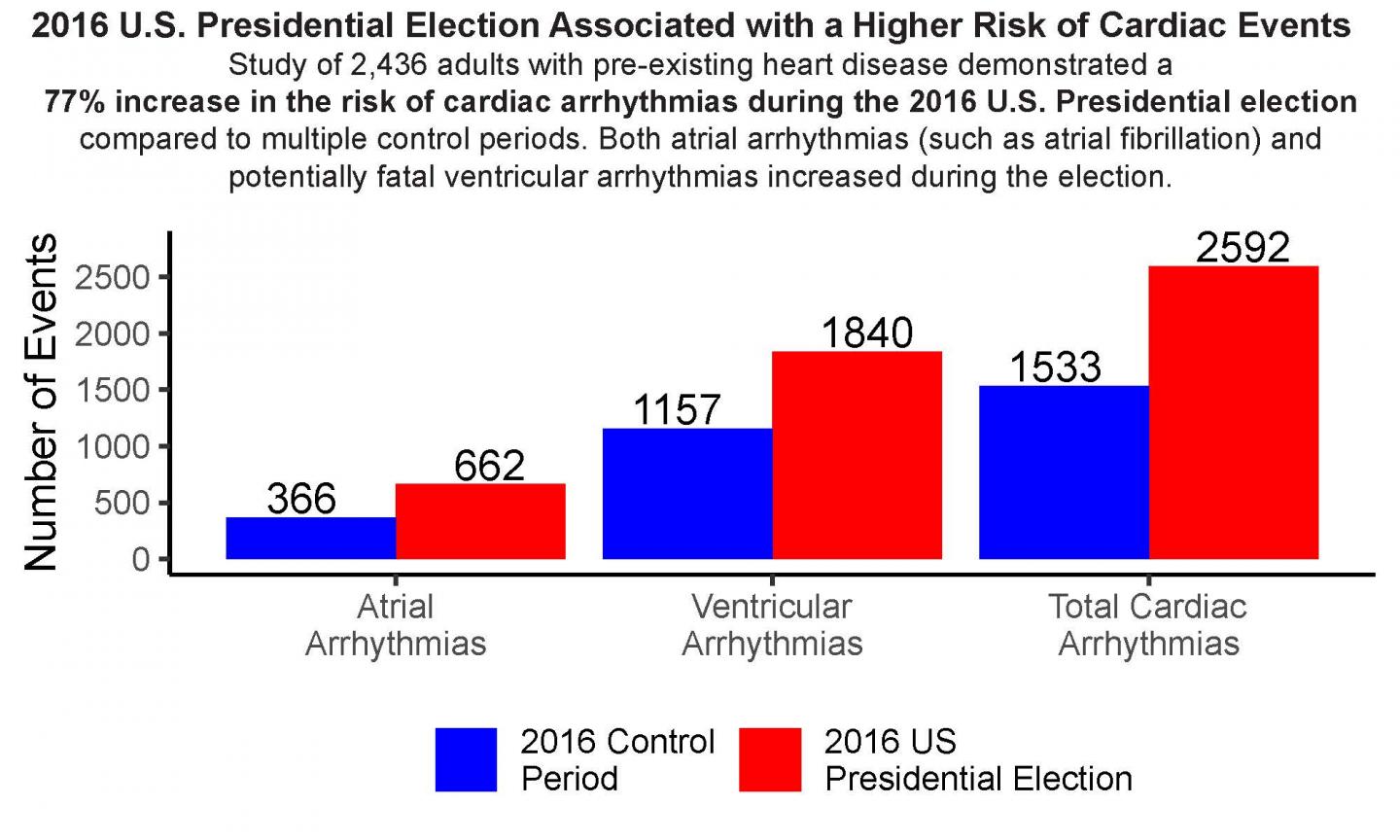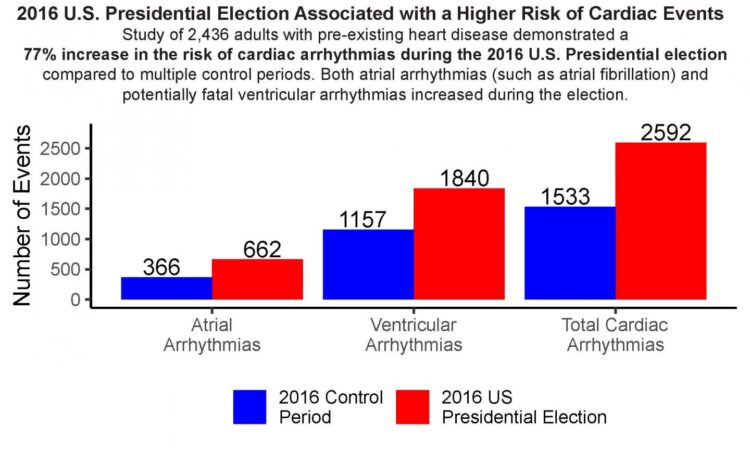A first of its kind study showed a 77% increase in the risk of cardiac arrhythmias leading up to and during the 2016 U.S. presidential election.

Credit: UNC School of Medicine
CHAPEL HILL, NC – American politics can be stressful and confrontational, which can lead to anger. The combination of intense stress and negative emotions can trigger potentially fatal cardiovascular events in people who are susceptible to these health issues. But the direct link between a stressful political election and an increase in cardiac events hadn’t been established, until now. A new study in the Journal of the American Heart Association is the first to show that exposure to a stressful political election is strongly associated with an increase in potentially life-threatening cardiac events.
“This retrospective case-crossover study was conducted in North Carolina, which was a swing state in the 2016 U.S. presidential election,” said lead author Lindsey Rosman, PhD, assistant professor of medicine in the division of cardiology at the UNC School of Medicine. “People living in North Carolina were exposed to a particularly high volume of negative political commercials, advertisements and campaign events that were very intense in rhetoric. So, their stress levels may have been especially high leading up to the 2016 election.”
The study looked at data from implanted cardiac devices of 2,500 patients at three points in time: a six-week span leading up to and following the 2016 U.S. presidential election, and two control periods that consisted of a six-week span from June to July of 2016, and a six-week span from October to November of 2015. Rosman and her team found a 77% increase in the risk of arrhythmia – an abnormal heart rate or irregular heart rhythm – during the 2016 election period compared to the control periods.
“The increase in risk was significant, even after taking into account known risk factors for cardiovascular disease such as age, hypertension, health behaviors, and other medical conditions,” Rosman said.
Researchers found a significant increase in the risk of both atrial arrhythmias, like atrial fibrillation, and potentially life-threatening ventricular arrhythmias.
“We also found a higher burden of atrial fibrillation during the election, and this is important because it can increase your risk of blood clots, stroke, and other heart-related complications,” Rosman said.
The study also looked at whether registered Republicans or Democrats experienced more arrhythmias during the election period, and if political concordance – whether a person’s registered affiliation matched the election results of the county they live in – had an impact on arrhythmic events.
“We were not able to conclusively show that the election was more stressful for one party over the other because of the size of our study,” Rosman said. “Risk of heart events increased for people no matter their political affiliation, race or gender. But we did see that registered Democrats experienced nearly twice as many heart events as Republicans, which is a trend we would like to explore further.”
When it comes to political concordance, those who were politically discordant (and may have felt socially or ideologically disconnected from their community) experienced a significant increase in arrhythmic events during the 2016 election. But, there was also an increase in risk for people who aligned as politically concordant.
The consequences of increased cardiac events due to stressful elections could be significant. With U.S. presidential elections happening every four years and midterms every two, Rosman says more research on the subject is needed to study the population-level health impact. She and her team hope to perform a similar study on a nationwide scale of stress and cardiac events during the 2020 U.S. presidential election.
###
This study was supported by a grant from the National Heart, Lung, and Blood Institute of the National Institutes of Health to Rosman. Support for the data linkage and database management was provided by the North Carolina Translational and Clinical Sciences (NC TraCS) Institute.
Media Contact
Carleigh Gabryel
[email protected]





